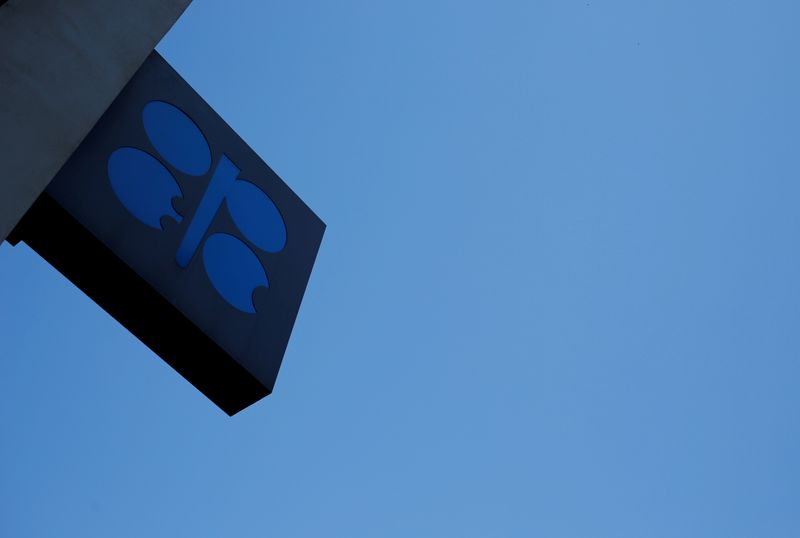By Alex Lawler
LONDON (Reuters) - OPEC oil output hit the lowest in two decades in June as Saudi Arabia and other Gulf Arab members made larger cuts, a Reuters survey found, pushing group compliance in a supply reduction pact above 100% despite incomplete adherence by Iraq and Nigeria.
The 13-member Organization of the Petroleum Exporting Countries pumped 22.62 million barrels per day (bpd) on average in June, the survey found, down 1.92 million bpd from May's revised figure.
OPEC and its allies in April agreed to a record output cut to offset a slump in demand caused by the coronavirus crisis. An easing of lockdowns and lower supply have helped prices (LCOc1) climb above $40 from April's 21-year low of below $16 a barrel.
"Demand is expected to pick up in the second half of the year and there is a general consensus that the OPEC+ group will live up to expectations and will achieve high compliance in June and July," said Tamas Varga of oil broker PVM.
OPEC, Russia and other producers, a group known as OPEC+, agreed to cuts of 9.7 million bpd, or 10% of global output, from May 1. OPEC's share, to be made by 10 members from October 2018 levels in the case of most countries, is 6.084 million bpd.
So far in June, they delivered 6.523 million bpd of the pledged reduction, equal to 107% compliance, the survey found. Compliance in May was revised up to 77%.
TWO-DECADE LOW
June's output would be the lowest by OPEC since at least 2000, excluding membership changes since then, Reuters survey records show.
The biggest drop in supply came from Saudi Arabia, which pumped 7.55 million bpd in June, almost 1 million bpd below its OPEC+ quota, and the lowest for the kingdom since 2002 according to Reuters surveys
The United Arab Emirates and Kuwait also delivered extra voluntary cuts, sources in the survey said.
OPEC supply also fell because Iraq and Nigeria, which were compliance laggards in May and in previous OPEC+ deals, made bigger cutbacks in June.
Iraq reduced exports from the south and north of the country, lifting its compliance to 62%, although its adherence remained lower than that of Gulf Arab OPEC members, while Nigeria boosted its compliance to 72%.
Iranian and Libyan supply held steady in June and Venezuelan output dropped further. All three are exempt from voluntary cuts because of U.S. sanctions or internal issues limiting output.
Venezuela, contending with both U.S. sanctions and a long-term decline in output, posted another drop in exports in June.
Oil output in Libya has plunged since January due to a blockade of ports and fields by groups loyal to eastern-based commander Khalifa Haftar. Talks are under way to enable a restart.
The Reuters survey aims to track supply to the market and is based on shipping data provided by external sources, Refinitiv Eikon flows data, information from tanker-trackers such as Petro-Logistics and Kpler, and information provided by sources at oil companies, OPEC and consultants.
